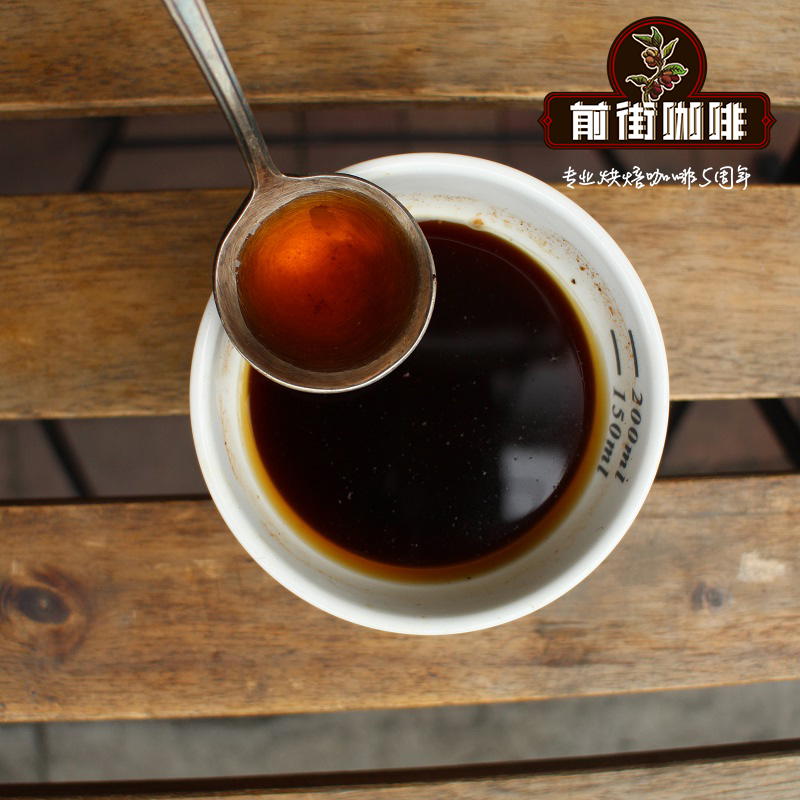Kenyan coffee flavor introduction Kenyan coffee hand brewing

Professional coffee knowledge exchange more coffee bean information please follow the coffee workshop (Wechat official account cafe_style)
In 1930, in order to improve the coffee industry in Kenya, the local Scott Laboratory (Scott laboratories) decided to start with local Kenyan varieties, hoping to cultivate varieties with high yield, resistance to diseases and insect pests, greater adaptability to climate changes, and adaptable to local soil characteristics. The researchers used traditional native Kenyan native bourbon and mocha for pairing improvement. Cultivate a new SL28, SL34 these two future stars, the flavor has beyond the traditional bourbon fruit acid, citrus, black plum and other strong fruit flavor. Kenya is a star producer of coffee in Africa. Although it is geographically close to Ethiopia, the coffee industry has started relatively late. Over the past decade, with the vigorous development of the boutique coffee industry, Kenya has become an important producer of international coffee gluttons. although the overall coffee production accounts for less than 5% of the world's coffee production, the characteristics of the local soil rich in phosphoric acid, SL varieties, and local unique Kenyan washing are all reasons why Kenyan coffee has become famous internationally today.
Gaturiri Factory, located in Nyeri, the most famous producing area in central Kenya, established its own washing plant in 1965 and now has more than 900smallholder members; it joined the Banichu Cooperative Union (Banichu Farmer Cooperative Society) in 1996. Kenyan washing: Kenya is located in the equatorial area, but coffee is grown above 1700 meters above sea level, even up to 2100 meters above sea level, and the average temperature is so low that the first stage of water washing and fermentation takes up to 72 hours (usually only 24 hours in normal countries). No more than 48 hours), low temperature fermentation for a long time to get a brighter, cleaner, full flavor The latter part of the drying process, all use elevated mesh beds, the advantage is good ventilation, can avoid contact with the high temperature of the cement ground, so that coffee beans can be evenly dried, the height of the bed and waist, but also convenient for farmers to select defects. Kenya is the first country in the world to adopt elevated net beds.
It is suggested that the filter cup V60, the grinding degree of Fuji 3.5, the water temperature 90 °, the ratio of powder to water 1: 15, 15 grams of powder, 225 grams of water, the total cooking time is 2 minutes.
Important Notice :
前街咖啡 FrontStreet Coffee has moved to new addredd:
FrontStreet Coffee Address: 315,Donghua East Road,GuangZhou
Tel:020 38364473
- Prev

The town of Wanago introduces the hand-brewing parameters of Yega-Xuefei coffee
For more information on coffee beans, please follow the coffee workshop (Wechat official account cafe_style) in Wanago, a small area of Gedeo in southern Ethiopia, about 5 km south of the town of Gedeo. The coffee batches produced in this small producing area have always had an amazing performance. Carefully selected
- Next

Kenya Jiaotu Lili Cooperative introduces Kenyan coffee flavor Kenyan coffee hand brewing
Professional coffee knowledge exchange more coffee bean information please follow the coffee workshop (Wechat official account cafe_style) in 1930 the local Scott Laboratory (Scott laboratories) in Kenya decided to start with local varieties in Kenya in order to improve the coffee industry, hoping to cultivate high yield, resistance to diseases and insect pests, greater adaptability to climate change, and
Related
- Does Rose Summer choose Blue, Green or Red? Detailed explanation of Rose Summer Coffee plots and Classification in Panamanian Jade Manor
- What is the difference between the origin, producing area, processing plant, cooperative and manor of coffee beans?
- How fine does the espresso powder fit? how to grind the espresso?
- Sca coffee roasting degree color card coffee roasting degree 8 roasting color values what do you mean?
- The practice of lattes: how to make lattes at home
- Introduction to Indonesian Fine Coffee beans-- Java Coffee producing area of Indonesian Arabica Coffee
- How much will the flavor of light and medium roasted rose summer be expressed? What baking level is rose summer suitable for?
- Introduction to the characteristics of washing, sun-drying or wet-planing coffee commonly used in Mantenin, Indonesia
- Price characteristics of Arabica Coffee Bean Starbucks introduction to Manning Coffee Bean Taste producing area Variety Manor
- What is the authentic Yega flavor? What are the flavor characteristics of the really excellent Yejasuffi coffee beans?

